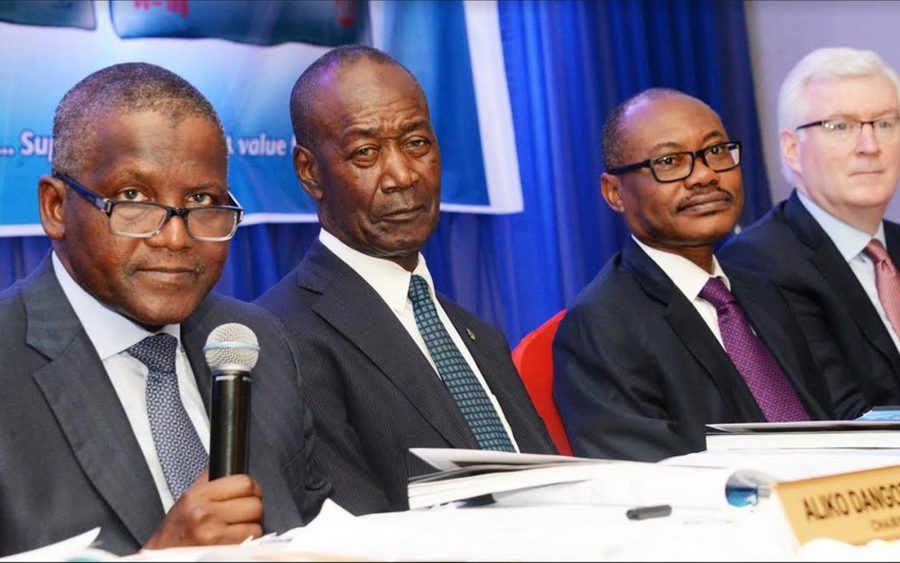Yesterday, Dangote Cement Plc released its audited results for the 2018 financial year. The company held an analyst call following the release of the results. Here are highlights of the call.
Group performance
Group volumes were up 7.4%, while Nigerian volumes rose by 11.4%. Favourable fuel mix at the Obajana and Ibeshe plants drove better margins. Dangote Cement is using coal from its own mines and third parties. The firm has ramped up coal usage since gas is more expensive than coal.
Q3 2018 performance in Nigeria was heavily affected by rains and flooding, especially in the month of September.
Despite this, the company’s 2018 results were the best ever, according to the CEO of the cement giant.
Update on London listing
Management of the firm stated that no date had been set, but the company was in discussion with a number of banks. The listing would very likely take place in 2020.
Earlier reports had hinted at a possible listing after the 2019 Presidential elections.
Market share in Nigeria
Chief Executive Officer, Joseph Makoju, stated that the company had met its target of 65% market share, in Nigeria set in 2018. Cement sales in Lagos accounted for about 27.7% of total sales in Nigeria.
Pan African update
The CEO also gave a rundown of operations across Africa.
The Tanzanian plant is now powered by gas. This should lead to increased profitability next quarter for the group. Ethiopian sales were down due to disturbances, but this is expected to stabilize this year, as the company is making progress in community relationships.
Tanzanian operations are also expected to be back to profitability this year since the company had commissioned its gas turbines.
As for operations in Ghana, Makoju stated that there were difficulties in the financial model, which the company intends to address. The company sold less cement, in the West African country, as it moved from exporting by road to going by sea.
He, however, expects the firm to open its grinding plant by 2020, which will use clinker supplied from Nigeria.
Sales volume in Zambia rose from 0.8 million tonnes to 1 million tonnes, due to improved logistics. The firm has begun the use of third-party trucks and has started moving volumes by rail.
There was a noticeable increase in volumes in Sierra Leone due to increased economic activity and resumption of building projects.
Operations in Senegal were positive, with the firm exporting volumes from there through neighbouring countries.
Demand in South Africa was low due to the largely tepid economy. Makoju, however, stated that he expects restrictions on cement imports to kick in sometime in the future.
Eyes on Kenya
Chief Financial Officer Brian Egan disclosed that the company was in the process of engaging with administrators of ARM Cement Kenya, and is interested in the company.
Kalambaina not a threat
Makoju also stated that BUA’s newly opened Kalambaina plant was not a threat since those sales accounted for a small part of its market. The plant, in his view, was targeted at mainly export.
Outlook and plans for 2019
Makoju also stated that he expects increased construction spending from the government this year. Bulk sales now account for 9% of total sales, an indication that the government had ramped up spending on infrastructure. Bulk buyers are largely government related.
Private sector purchase was the major driver last year. Dangote Cement intends to ramp up its export to neighbouring countries.
Cement sales in Nigeria have increased so far in the first two quarters of 2019, with sales up by 10% as at mid-February.
















